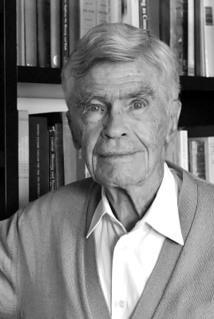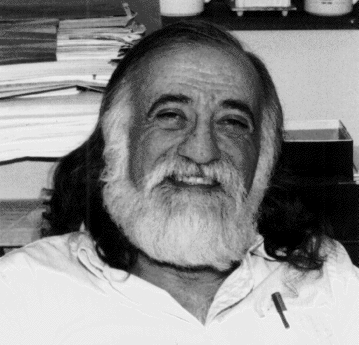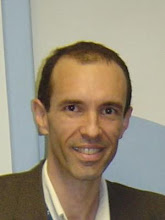This is dedicated to the students at EGC/UFSC (especially those from an Engineering or IT background) who have been fighting to put together ideas and to build an understanding of worldviews and wide methodological approaches. Why especially Eng-IT? Because we (yes, myself included) were never informed that there are worldviews (and that ours is ontologically positivist-individualist, leading to cartesian thinking. Of course this is kind of embarrassing, but that's the way one finally finds out, after bragging about the existential pleasures of engineering, that engineering is not THE (only) thing and that there's important stuff missing in our education...).
In 2009, all freshmen at EGC attended the new mandatory course on the scientific method and underlying philosophy. And everyone must rapidly get a firm grasp of all that, enough to undertake interdisciplinary research with awareness of the differences among quite diverse ontologies (interpretivism, complexity, realism in its various flavors such as positivism and systemism, ...) - since EGC has 'knowledge as a production factor' as its research object. Too interdisciplinary?
But stumble no more! Your problems are over! For you and for anyone struggling to understand all those philosophical issues, here's "Monty Python Football" (with transcripts below obtained from here, here, and here):
International Philosophy
The (first) sketch:
Football commentator: Michael Palin
Football Commentator:
Good afternoon, and welcome to a packed Olympic Stadium, München
And here come the Germans now, led by their skipper, "Nobby" Hegel. They must surely start favourites this afternoon; they've certainly attracted the most attention from the press with their team problems. And let's now see their line-up.
Football Commentator:
The Germans playing 4-2-4, Leibniz in goal, back four Kant, Hegel, Schopenhauer and Schelling, front-runners Schlegel, Wittgenstein, Nietzsche and Heidegger, and the mid-field duo of Beckenbauer and Jaspers. Beckenbauer obviously a bit of a surprise there.
Football Commentator:
And here come the Greeks, led out by their veteran centre-half, Heraclitus.
Football Commentator:
[Referee spots the ball and the captains shake hands.]
And as the two skippers come together to shake hands, we're ready for the start of this very exciting final. The referee Mr Confucius checks his sand and... [referee blows his whistle] they're off!
Nietzsche and Hegel there. Karl Jaspers number seven on the outside, Wittgenstein there with him. There's Beckenbauer. Schelling's in there, Heidegger covering. Schopenhauer.
[Pan to the other end, the Greeks also thinking deeply, occasionally gesticulating.]
And now it's the Greeks, Epicurus, Plotinus number six. Aristotle. Empedocles of Acragus and Democratus with him. There's Archimedes. Socrates, there he is, Socrates. Socrates there, going through.
[The camera follows Socrates past the ball, still on the centre spot.]
There's the ball! There's the ball. And Nietzsche there. Nietzsche, number ten in this German side.
The (second) sketch: The cast:
Football Commentator:
Kant moving up on the outside. Schlegel's on the left, the Germans moving very well in these opening moments.
This is the joining of the two-half sketches...
Anchorman: John Cleese
Football Commentator: Michael Palin
Archimedes: John Cleese
Well right now we're going back to the Olympic stadium for the closing minutes of the Philosophy Final, and I understand that there's still no score.
Football Commentator:
Well there may be no score, but there's certainly no lack of excitement here. As you can see, Nietzsche has just been booked for arguing with the referee.
He accused Confucius of having no free will, and Confucius he say, "Name go in book".
And this is Nietzsche's third booking in four games.
And who's that? It's Karl Marx, Karl Marx is warming up.
It looks as though there's going to be a substitution in the German side.
Obviously the manager Martin Luther has decided on all-out attack, as indeed he must with only two minutes of the match to go.
And the big question is, who is he going to replace, who's going to come off?
It could be Jaspers, Hegel or Schopenhauer, but it's Wittgenstein! Wittgenstein, who saw his aunty only last week, and here's Marx.
Let's see it he can put some life into this German attack.
[The referee blows his whistle; Marx stops and begins contemplating like the rest.]
Evidently not. What a shame.
Well now, with just over a minute left, a replay on Tuesday looks absolutely vital.
There's Archimedes, and I think he's had an idea.
Eureka!
[He runs towards the ball and kicks it.]
Archimedes out to Socrates, Socrates back to Archimedes, Archimedes out to Heraclitus, he beats Hegel [who, like all the Germans, is still thinking].
Heraclitus a little flick, here he comes on the far post, Socrates is there, Socrates heads it in!
Socrates has scored!
Socrates scores, got a beautiful cross from Archimedes.
Hegel is arguing that the reality is merely an a priori adjunct of non-naturalistic ethics, Kant via the categorical imperative is holding that ontologically it exists only in the imagination, and Marx is claiming it was offside.
It's all over! Germany, having trounced England's famous midfield trio of Bentham, Locke and Hobbes in the semi-final, have been beaten by the odd goal, and let's see it again.
There it is, Socrates, Socrates heads in and Leibnitz doesn't have a chance.
And just look at those delighted Greeks.
There they are, "Chopper" Sophocles, Empedocles of Acragus, what a game he had. And Epicurus is there, and Socrates the captain who scored what was probably the most important goal of his career.


















